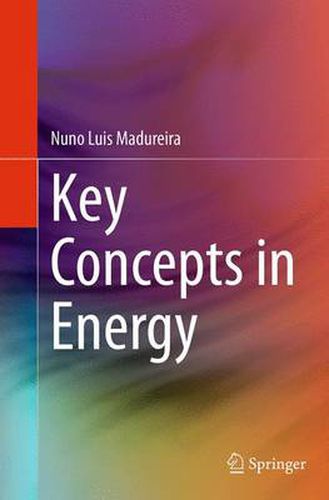Readings Newsletter
Become a Readings Member to make your shopping experience even easier.
Sign in or sign up for free!
You’re not far away from qualifying for FREE standard shipping within Australia
You’ve qualified for FREE standard shipping within Australia
The cart is loading…






This title is printed to order. This book may have been self-published. If so, we cannot guarantee the quality of the content. In the main most books will have gone through the editing process however some may not. We therefore suggest that you be aware of this before ordering this book. If in doubt check either the author or publisher’s details as we are unable to accept any returns unless they are faulty. Please contact us if you have any questions.
Organized around eight fundamental ideas, Key concepts in energy history explores the discoveries, technologies and new paradigms in the field of energy, and how they have changed the course of history. Complex technical concepts such as the rebound effect , technological hybridization , marginal cost pricing are explained in clear terms and a balanced and concise account of t energy sources in the XIX and XX century such as wood, coal, oil, hydroelectricity and nuclear energy is provided.
Key concepts in energy considers the process of energy-substitutions and analyzes it as a process of complementary usages, hybridization and technological mixes. The ex-post view tends to focus on replacement from among alternative energy-technologies and is basically innovation-centric. This means that little attention has been given to factors such as the windows of opportunities created by governments, inventors and entrepreneurs.
This book highlights how key energy concepts surfaced, tracing their evolution throughout history. It encompasses four economic concepts (rebound effect, energy intensity, marginal cost pricing and levelized cost accounting) and four technological-engineering concepts (primary/final energy, technological hybridization, last gasp and probable oil reserves). The main benefit from reading the book is a cross disciplinary overview of energy fundamentals in a short and focused reading.
$9.00 standard shipping within Australia
FREE standard shipping within Australia for orders over $100.00
Express & International shipping calculated at checkout
This title is printed to order. This book may have been self-published. If so, we cannot guarantee the quality of the content. In the main most books will have gone through the editing process however some may not. We therefore suggest that you be aware of this before ordering this book. If in doubt check either the author or publisher’s details as we are unable to accept any returns unless they are faulty. Please contact us if you have any questions.
Organized around eight fundamental ideas, Key concepts in energy history explores the discoveries, technologies and new paradigms in the field of energy, and how they have changed the course of history. Complex technical concepts such as the rebound effect , technological hybridization , marginal cost pricing are explained in clear terms and a balanced and concise account of t energy sources in the XIX and XX century such as wood, coal, oil, hydroelectricity and nuclear energy is provided.
Key concepts in energy considers the process of energy-substitutions and analyzes it as a process of complementary usages, hybridization and technological mixes. The ex-post view tends to focus on replacement from among alternative energy-technologies and is basically innovation-centric. This means that little attention has been given to factors such as the windows of opportunities created by governments, inventors and entrepreneurs.
This book highlights how key energy concepts surfaced, tracing their evolution throughout history. It encompasses four economic concepts (rebound effect, energy intensity, marginal cost pricing and levelized cost accounting) and four technological-engineering concepts (primary/final energy, technological hybridization, last gasp and probable oil reserves). The main benefit from reading the book is a cross disciplinary overview of energy fundamentals in a short and focused reading.